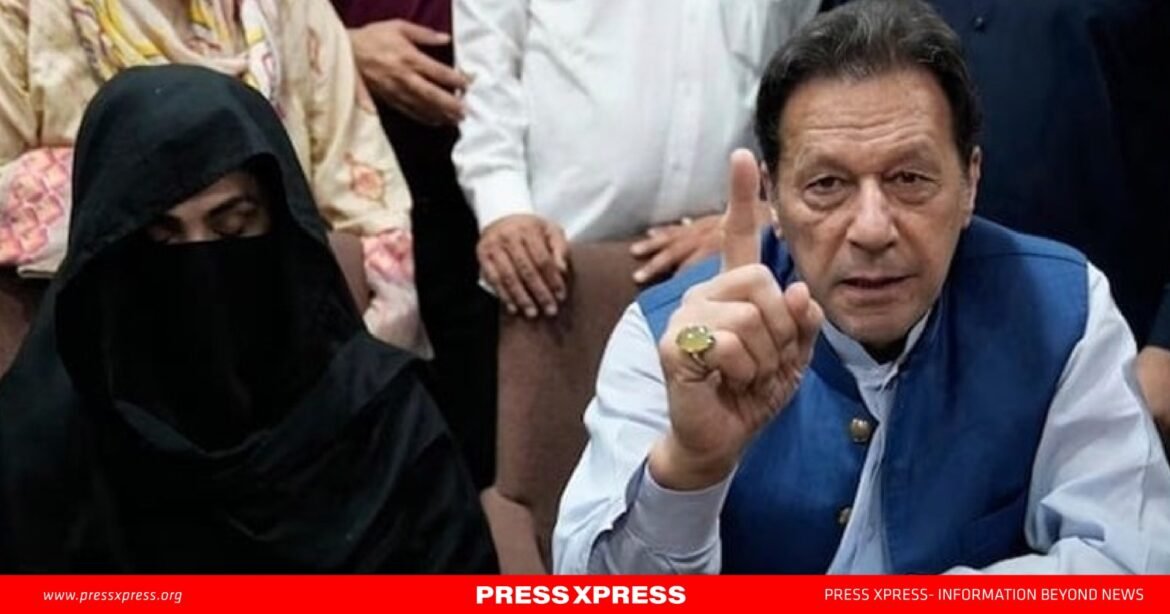Few personalities in Pakistan’s political sphere provoke as much debate as Bushra Bibi, the third wife of former Prime Minister Imran Khan. Once a private figure known for her spiritual leanings, she has become an increasingly prominent presence in public and political life, drawing both admiration and criticism across the ideological spectrum.
Bushra’s emergence as a political actor was cemented in late November when she led a Pakistan Tehreek-e-Insaf (PTI) rally at Islamabad’s D-Chowk. Her participation marked a significant shift in her role, from the often-muted support of her husband to an active political presence, prompting discussions about her influence within PTI and on Khan himself.
A Polarising Presence
Bushra Bibi’s rise has been met with sharply divided reactions. Among progressives, her prominence is often viewed as part of PTI’s broader use of religious symbolism in its politics. Critics argue her public persona reinforces patriarchal norms under the guise of piety, deflecting from broader issues of gender equality.
Conservatives, however, have not been entirely welcoming. Some have questioned her perceived non-compliance with conservative Islamic expectations, pointing to her participation in a public rally alongside male non-relatives as a deviation from traditional norms. This scrutiny reflects Pakistan’s broader discomfort with women in public and political roles, where their actions are often framed as extensions of male dominance or as challenges to societal norms.
The Politics of Piety
Bushra’s role underscores the interplay between piety and power in Pakistan. Known for her association with Sufi traditions and spiritual guidance, she has faced both reverence and ridicule. Detractors have labelled her a murshid (spiritual guide), a manipulative force, and even a proxy for state interests.
Her marriage to Imran Khan was accompanied by rumors of divine dreams foretelling his political rise. While these narratives bolstered Khan’s populist appeal among some supporters, they also fed into stereotypes about women as scheming or overly ambitious.
In Pakistan’s deeply gendered political landscape, Bushra’s story is not unique. Women in power, from Fatima Jinnah to Benazir Bhutto and Maryam Nawaz, have faced similar scrutiny over their personal lives and choices. This reflects a pattern where women’s agency is often seen as suspect, whether framed as a threat to patriarchal stability or as a tool for male leaders.
Gender, Politics, and Public Perception
Bushra’s full veil and emphasis on modesty have positioned her as a symbol of conservative values. Yet, she has faced significant backlash from within conservative circles, highlighting the narrow space women occupy in Pakistan’s political discourse. Her critics point to a double standard: male leaders are rarely subjected to the same level of personal and moral scrutiny.
Imran Khan’s leadership has brought more urban, middle-class women into public spaces than perhaps any other Pakistani leader. However, this visibility has not necessarily translated into greater political power for women. Many female supporters of PTI echo their leader’s rhetoric, aligning with a form of postfeminism that frames empowerment through religious and cultural morality rather than equality or rights-based activism.
A Larger Debate
Bushra Bibi’s evolving role reflects broader debates about the intersection of religion, politics, and gender in Pakistan. Her spiritual background, political visibility, and personal choices have become focal points for conversations about women’s roles in public life.
For progressives, her prominence raises questions about the limits of using religious frameworks to advance women’s rights. Conservatives, meanwhile, grapple with the challenges her visibility poses to traditional gender norms.
In navigating these complexities, Pakistan’s political future will likely continue to be shaped by figures like Bushra, whose influence transcends simple categorisation. Her story encapsulates the tensions and contradictions of a society wrestling with modernity, tradition, and the evolving role of women in its political landscape.


